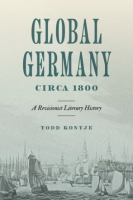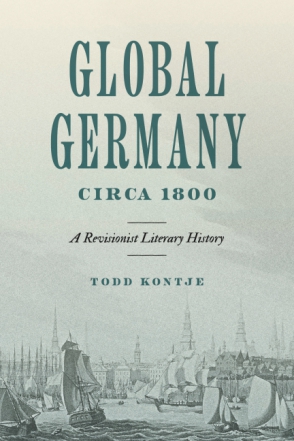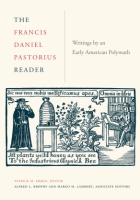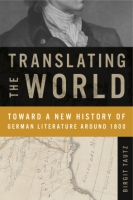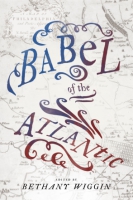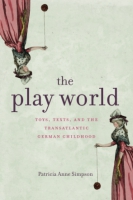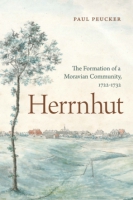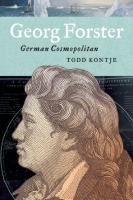Global Germany Circa 1800
A Revisionist Literary History
Todd Kontje
“Kontje shows how writers of the German eighteenth century came to an increasingly global understanding of the world organized around ideas of mobility and motion. He thereby foregrounds specific genres and formats (travel writing, autobiography, collected works editions, etc.) that ‘centrifugally’ directed eighteenth-century readers out toward the world in contrast to the ‘centripetal’ pull of works projecting a more limited idea of national culture.”
- Description
- Reviews
- Bio
- Table of Contents
- Sample Chapters
- Subjects
In this book, Todd Kontje presents a revisionist literary and intellectual history, inviting readers to consider how we might understand “Germany” at the turn of the nineteenth century if we remove the nation-state as the inevitable goal of cultural and political development. Focusing on the pivotal years around 1800, when many of the concepts that define the modern era first came into being, Kontje investigates how thinkers in and around Weimar—from Goethe, Schiller, and Kant to Georg Forster, Heinrich von Kleist, and Alexander von Humboldt—worked within existing political structures to make sense of the region’s place in the world. Ultimately, he reveals how Weimar, a remote artist hub long thought to exemplify the insularity of a soon-to-be-unified nation, was in fact utterly worldly, and in a manner very different from the political capitals of imperial nation-states like London and Paris.
Accessible and entertaining, this literary history is essential reading for German studies students and scholars, and it will appeal to audiences in world history, empire studies, intellectual history, and comparative literature.
“Kontje shows how writers of the German eighteenth century came to an increasingly global understanding of the world organized around ideas of mobility and motion. He thereby foregrounds specific genres and formats (travel writing, autobiography, collected works editions, etc.) that ‘centrifugally’ directed eighteenth-century readers out toward the world in contrast to the ‘centripetal’ pull of works projecting a more limited idea of national culture.”
“Todd Kontje’s Global Germany Circa 1800 is a wide-ranging and meticulously researched work that demonstrates the degree to which German writers of the age were implicated in and reflecting on globalization and its problems. Shaped by the legacy of the Holy Roman Empire, their views on such issues as imperialism, revolution, and ecological destruction offer promising historical alternatives to proposals that emerged in advanced European nation-states, such as France and England.”
Todd Kontje is Distinguished Professor of German and Comparative Literature at the University of California, San Diego. He is the author of four books, including Georg Forster: German Cosmopolitan, winner of the 2023 DAAD/GSA Prize for the Best Book in Literature and Cultural Studies.
Preface
Acknowledgments
Introduction
1 The World in Letters
2 The World in Motion
3 Goethe’s Journey to the Center of the Earth
4 Schiller and the Drama of Empire
5 Kleist and the Revolution
6 Alexander von Humboldt and the Anthropocene
Conclusion
Notes
Bibliography
Index
Download a PDF sample chapter here: Introduction
Mailing List
Subscribe to our mailing list and be notified about new titles, journals and catalogs.
